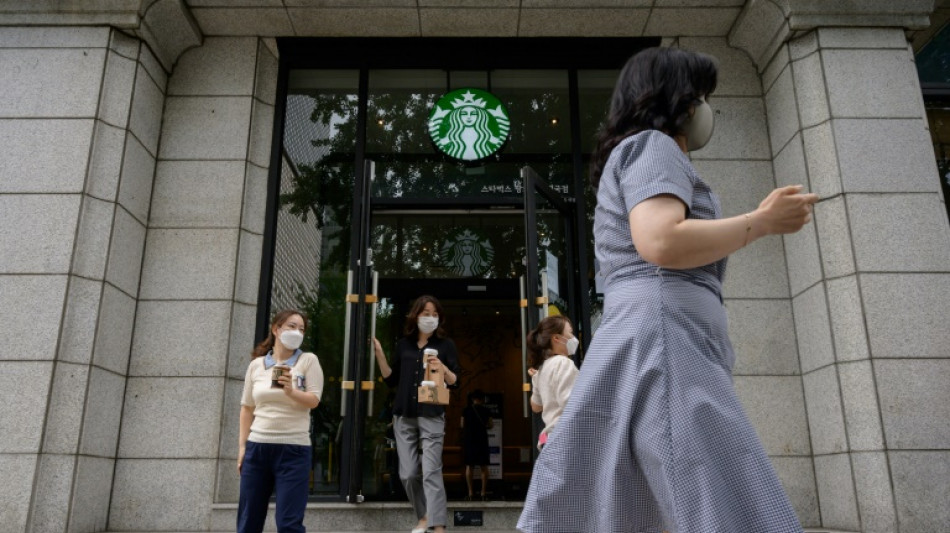

S. Korea Starbucks in a froth over presidential candidates names
Starbucks in South Korea has banned customers from using the names of the country's presidential candidates -- or the disgraced ex-president -- for their orders, the coffee giant told AFP on Wednesday.
South Korea is holding snap presidential elections on June 3, to decide who will replace impeached former president Yoon Suk Yeol, ousted last month for his disastrous attempt to impose martial law in December.
In South Korea, Starbucks stores run a "Call My Name" service, which allows customers to select a nickname -- which they input via the Starbucks app -- that baristas use to announce orders when complete.
Customers will not be able to use the names of all seven presidential candidates, including frontrunner Lee Jae-myung, and main conservative rival Kim Moon-soo, until after the vote, the company said.
Starbucks said that they had taken the action, which was announced this week as official campaigning started, based on past experience of customers misusing the "Call My Name" feature during previous elections.
The feature is a "unique Starbucks service designed to build a sense of connection between store staff and customers", the company said in a statement.
"We do not take any religious or political stance, and we actively monitor and restrict the use of negative language, profanity, sexually explicit content, or any expressions that may be difficult or inappropriate for our staff to call out."
The company is also banning customers from using the name of ex-president Yoon, who has been stripped of office and is facing an ongoing criminal trial on insurrection grounds.
South Korea's upcoming election comes as experts flag growing concerns over increasing political polarisation and division.
Yoon's martial law -- which he claimed was necessary to break legislative gridlock and "root out" pro-North Korea "anti-state" forces -- garnered support from extreme religious figures and right-wing YouTubers.
Pro-Yoon rallies turned violent in January when extremist supporters angered by the court's approval of his formal arrest warrant stormed a Seoul courthouse. Two of them were handed jail terms Wednesday.
Yoon's conservative People Power Party has not yet expelled him, and its official candidate, Kim Moon-soo, has drawn public attention as the only cabinet member who refused to bow in apology for failing to prevent Yoon's attempted suspension of civilian rule.
The Democratic Party's Lee is currently facing multiple criminal trials, and since no South Korean president has ever taken office while under indictment, this has fuelled widespread legal and political uncertainty.
S.Sánchez--ECdLR






